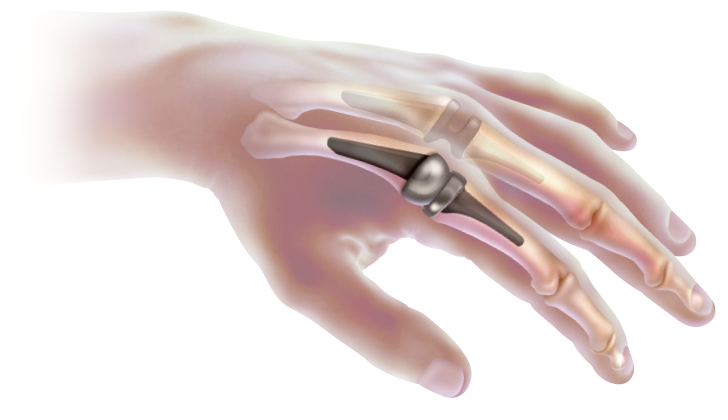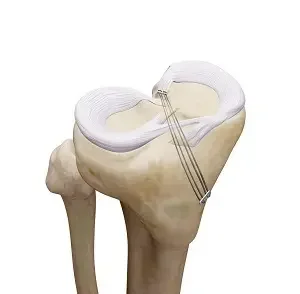General Surgery
Introduction
General surgery is a fundamental discipline within the field of medicine that focuses on surgical interventions for a wide range of medical conditions.
Surgeons who specialize in general surgery are skilled in performing procedures on various parts of the body, including the abdomen, digestive tract, endocrine system, breast, skin, soft tissues, and more. They are trained to diagnose, treat, and manage conditions such as appendicitis, hernias, gallbladder diseases, tumors, and trauma, among others.
General surgeons often work closely with other medical specialists to provide comprehensive care to patients. The field of general surgery encompasses both elective and emergency surgeries, with an emphasis on applying surgical techniques to improve patients’ health and quality of life.
Scope General Surgery
The following fields allow general surgeons to subspecialize in one or more of them:
Trauma Surgery
General surgery is generally in charge of providing overall trauma treatment in many regions of the world, including North America, Australia, and the United Kingdom.
Some general surgeons pursue specialized certification in surgical critical care and further training in this discipline, most often. Almost any surgical emergency has to be handled first by general surgeons.
They must carry out a number of treatments to stabilize critically ill or severely damaged patients, including thoracostomy, cricothyroidotomy, compartment fasciotomies, and emergency laparotomy or thoracotomy to stop bleeding.
Frequently, they are the first to respond to these patients. Additionally, they are asked to staff trauma or surgical intensive care units.
Emergency surgery is a part of any general surgeon’s training. Their major concerns include organ perforations, intestinal blockages, infections, and bleeding.
One of the most common surgical operations performed globally is cholecystectomy, or the surgical removal of the gallbladder. Although most of the time this is done voluntarily, an emergency procedure may be necessary if the gallbladder becomes extremely inflamed.
Other common emergencies include infections, appendix ruptures, and blockages in the small intestine.
Laparoscopic Surgery
This is a relatively new field of study that uses 3- to 15-mm incisions to implant cameras and other small tools utilizing limited access procedures. This idea is now being developed into robotic surgery. This method can be used to remove gallbladders, appendices, and colons.
Laparoscopic repair is another option for treating hernias. Laparoscopic bariatric surgery may be performed, and it has advantages in lowering wound complications in individuals who are obese. Laparoscopic procedure proficiency is demanded of today’s qualified general surgeons.
Colorectal Surgery
Diverticulitis, colon and rectal cancer, gastrointestinal hemorrhage, hemorrhoids, and inflammatory bowel disorders (such as ulcerative colitis or Crohn’s disease) are just a few of the major and minor conditions that general surgeons address.
Breast Surgery
Most non-cosmetic breast surgeries, including lumpectomies and mastectomies, are performed by general surgeons. This is especially true when it comes to the assessment, identification, and management of breast cancer.
Vascular Surgery
If they have specialized training and certification in vascular surgery, general surgeons are qualified to undertake this type of procedure. If not, vascular surgery experts usually carry out these treatments. Nonetheless, mild vascular problems can be treated by general surgeons.
Endocrine Surgery
General surgeons are qualified to remove the adrenal glands located directly above each kidney in the abdomen, as well as the thyroid and parathyroid glands in the neck, whole or in part. In many areas, they are the only surgeons trained to do this. These operations may fall under the purview of other specialized surgeons in towns with a large number of subspecialists.
Transplant Surgery
In charge of overseeing all facets of the pre-, surgical, and post-operative care of patients receiving abdominal organ transplants. Organs transplanted include the pancreas, liver, kidney, and, less frequently, the small intestine.
Surgical Oncology
A surgical oncologist is a general surgeon who specializes in treating cancer patients. Other surgeons who treat cancer patients include gynecologists and thoracic surgical oncologists.
The evidence that outcomes in surgical cancer care are positively associated with surgeon volume— that is, the more cancer cases a surgeon treats, the more proficient he or she becomes, and the higher.
The survival rates for their patients— supported by numerous clinical trials underscores the significance of training surgeons who subspecialize in cancer surgery.
This is Another contentious issue, but the idea that a surgeon who does a particular surgery more frequently would provide better outcomes than a surgeon who performs the same treatment is seldom widely acknowledged if not common sense.
This is especially true for complicated cancer resections such as gastrectomy with extended (D2) lymphadenectomy for gastric cancer and pancreaticoduodenectomy for pancreatic cancer.
After completing a general surgery residency, surgical oncology is often a two-year fellowship.
Cardiothoracic Surgery
The majority of cardiothoracic surgeons in the United States (D.O. or M.D.) first finish a general surgery residency, which lasts for around 5-7 years, before beginning a cardiothoracic surgery fellowship, which lasts for about 2-3 years. Nonetheless, some new programs now provide a 6–8 year residency in cardiothoracic surgery.
Pediatric Surgery
General surgery has a specialization called pediatric surgery. Patients under the age of 18 are operated on by pediatric surgeons. A 2-3 year fellowship follows 5-7 years of residency in pediatric surgery.
Trends
Minimally invasive surgery became more common in the 2000s. Robotic surgery, also referred to as robot-assisted surgery, has generated a great deal of excitement despite the lack of evidence supporting its substantial benefits relative to its expense.
Training General Surgery
Following graduation from medical school with an MD, MBBS, MBChB, or DO degree, general surgery is a five- to seven-year residency in Canada, Australia, New Zealand, and the United States.
A residency in Australia or New Zealand is required to be eligible for the Royal Australasian College of Surgeons Fellowship.
In the United States, completing a general surgery residency makes one eligible for board certification by the American Board of Surgery or the American Osteopathic Board of Surgery.
This certification is also necessary for general surgeons to have operating privileges at the majority of American hospitals following their training. Residency is required in Canada in order to be eligible for Fellowship and Certification by the Royal College of Physicians and Surgeons of Canada.
After completing two years of the Foundation Programme and five years of medical school, surgical trainees in the UK begin their training.
Medical professionals will take the Membership of the Royal College of Surgeons (MRCS) test throughout their two- to three-year core training program. Surgeons who pass the MRCS test may be referred to as “Mister” or “Miss/Ms./Mrs.” instead of “Dr.”
This is a centuries-old custom from the days when surgeons were not allowed to attend medical school and were instead affiliated with barbers through the Barber Surgeon’s Guild. It originated in the United Kingdom.
Numerous Commonwealth nations, including New Zealand and a few Australian states, also follow this custom. Then, trainees will proceed to Higher Surgical Training (HST): an additional five to six years of training.
They could decide to specialize at this period. The test for Fellowship in the Royal College of Surgeons (FRCS) in general surgery and the subspecialty must be taken before the end of HST.
After completing training, the surgeon will be qualified to practice as a consultant general surgeon in the NHS as well as the private sector. They will also be entitled to register as specialists on the GMC Specialist Register.
UK surgical residents are now only allowed to work 48 hours a week due to the introduction of the European Working Time Directive.
It could be required to create a sub-consultant grade in order to accommodate individuals who have just obtained a UK Certificate of Completion of Training.
FAQ
Which type of surgeon is best?
Patients who are critically sick or have had trauma typically receive extensive care from general surgeons. In addition to needing to be proficient in almost every type of surgery, surgeons need also be equipped to deal with a wide range of crises and unforeseen circumstances in the operating room.
What is the riskiest surgery?
One of the riskiest procedures for brain surgery is a craniectomy. In order to alleviate pressure on your brain, a portion of your skull will be removed during this medical surgery. It’s a more common surgery because of contemporary technology, but it’s still quite perilous.
What is the most serious surgery?
Any kind of surgery on the skull or brain is among the riskiest operations. In fact, a craniectomy is one of the riskiest procedures that is frequently done on the skull and brain.
Which surgeon is in demand?
Orthopedics, internal medicine, ob-gyn, dermatology, pediatrics, radiography, general surgery, ophthalmology, family medicine, chest medicine, anesthesia, pathology, and ENT are among the top disciplines that are in demand and provide remarkable career advancement.
Who is the king of surgery?
Surgery is the most valuable of all the medical tantras, according to Sushruta, who regarded it as the primary field of medicine and attributed its greater benefit to creating rapid results through the use of surgical equipment and appliances.
Who is the father of surgery?
The father of surgery is regarded as Sage Sushruta. He was an ancient Indian physician who is regarded as the “Father of Indian Surgery.”
Which surgery is costly?
One of the most costly operations performed worldwide is a heart transplant, which will set you back anywhere from $1.38 million to $1.66 million. The expense far exceeds the time spent by the physicians and nurses. Medication to sustain the organ is one of the additional expenses that drive up the cost of heart transplants.








One Comment